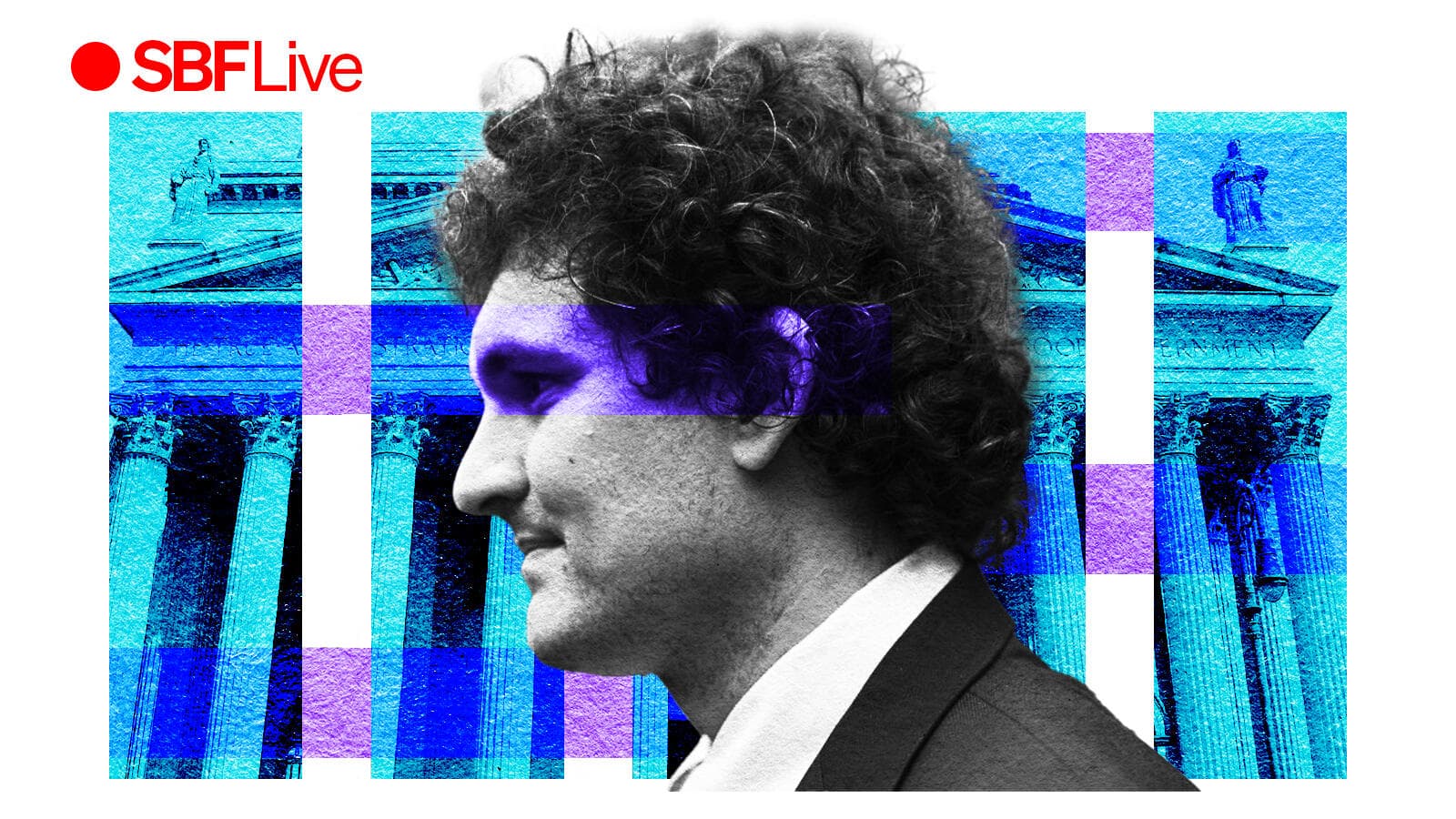Bankman-Fried’s lawyers want to block potential trial testimonies
Some witness testimonies should be blocked, SBF lawyers argued in a Monday letter to Judge Kaplan

Artwork by Crystal Le
As former FTX CEO Sam Bankman-Fried faces trial in New York this week, his lawyers continue to clash with the US government.
In a letter sent to Judge Lewis Kaplan, who will oversee the trial, Bankman-Fried’s attorneys are pushing to toss a motion from the US government.
Bankman-Fried’s trial begins with jury selection on Wednesday and is expected to last roughly six weeks.
Read more: Sam Bankman-Fried’s trial starts Oct. 3: What you need to know
According to the letter filed by the government, prosecutors are both seeking and seeking to use testimonies from FTX customers on how they believed their assets were being used, investor testimonies focused on FTX as a custodian, and “alleged coconspirator witnesses regarding their interpretation of statements made by” SBF.
Lawyers for Bankman-Fried argued that the government is seeking the motion prematurely and the testimonies are focused on the opinions and interpretations of the FTX customers.
Bankman-Fried’s team was dealt a loss ahead of the trial when Judge Kaplan ruled in favor of the government’s motion to block a handful of expert witness testimonies. On the same grounds, Bankman-Fried’s team argues, the government should not be able to use investor testimony.
“The Second Circuit held that excluding defense expert testimony that would counter the government’s arguments as to what a reasonable investor would have found material would leave the defendant “only with the ‘victims’ of his conduct as sources of potential testimony on this issue, an odd limitation where the jury is to evaluate materiality in an objective manner,” lawyers wrote Monday.
Finally, in regards to the alleged co-conspirators, the lawyers claim that the request for testimony is both premature and vague “because none of the requisite evidentiary and factual foundations exist and it is unclear whether they ever will be.”
However, if Kaplan rules in favor of the government then the defense argues that it should, at the very least, be allowed to cross-examine the witnesses.
Blockworks reporters Casey Wagner and James Cirrone are covering Sam Bankman-Fried’s trial from the courtroom in New York. Follow for instant trial updates on their X accounts.
Get the news in your inbox. Explore Blockworks newsletters:
- The Breakdown: Decoding crypto and the markets. Daily.
- 0xResearch: Alpha in your inbox. Think like an analyst.






